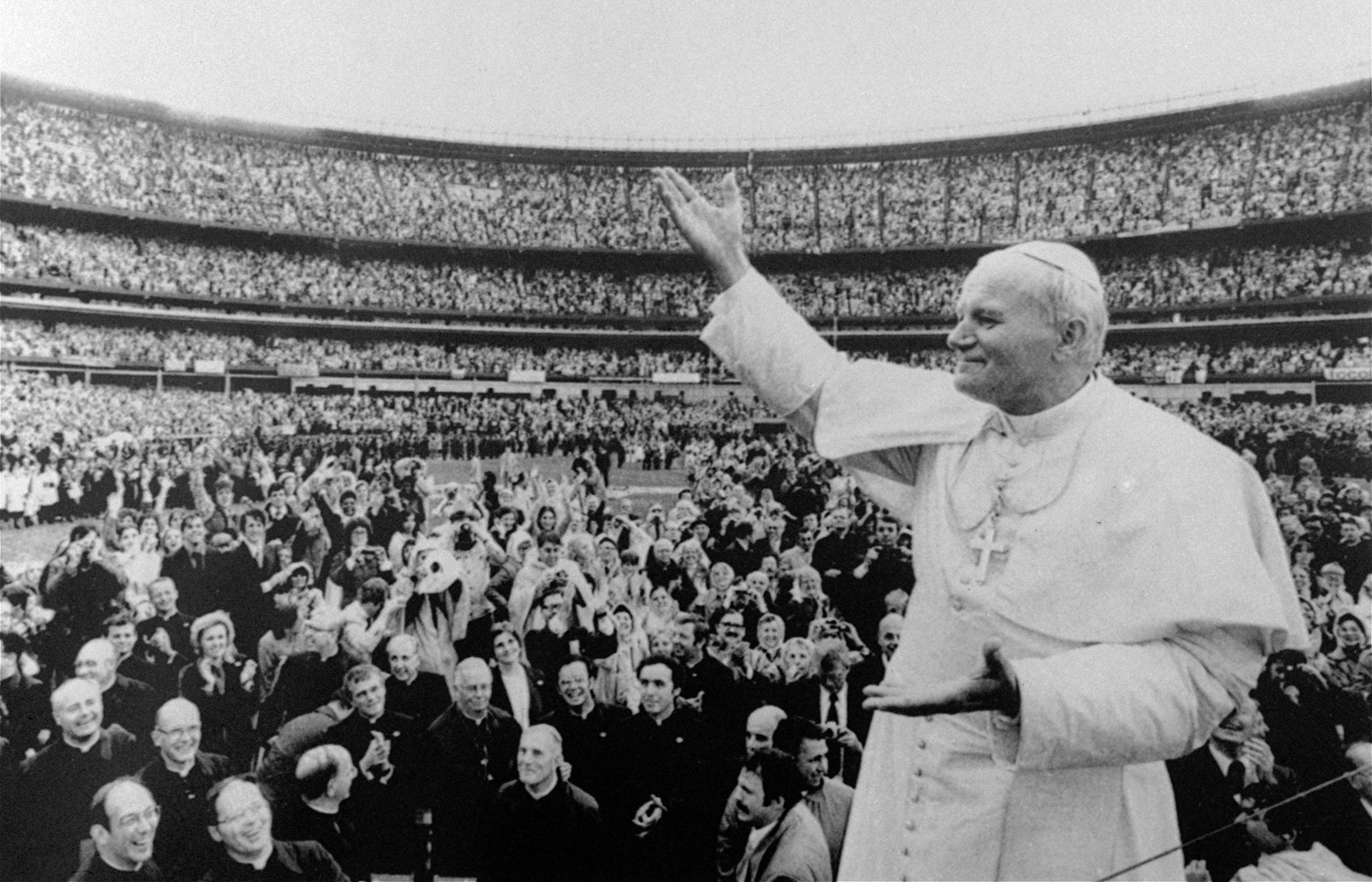
Dear Families,
Pope John Paul II was a phenomenal communicator; he maximized every tool and opportunity to impart truths about our faith, family, and society. Continuing our focus on the media and its effect on children, family life, education, and the culture, I wanted to share a couple excerpts from his annual addresses on World Communications Day.
This prophetic gem comes from the 19th address back in 1985:
Young people, therefore, are the first and most immediate receivers of the mass media, but they are also the most exposed to the flood of information and of images which arrive in the house by means of the media. Furthermore, it is not possible to ignore the danger of certain messages, transmitted even during the hours when youth listening and viewing is at its peak, slipped in under cover of ever more explicit and aggressive advertising, or introduced in shows which give the impression that the life of man is regulated only by the laws of sex and violence.
The term "videodependence" is already in common use to describe the ever mightier influence that the instruments of social communication, with their capacity for suggestion and modernity, have upon the young people. There is need to examine this phenomenon very thoroughly, to verify its real consequences on receivers who have not yet developed a sufficiently mature critical sense. It is not merely a question of conditioning free time, that is, of limiting the amount of time available each day for other intellectual and recreational activities, but there is also question of the effects upon the very psychology, the culture, the behaviour of youth.
The education imparted by the traditional teachers, particularly the parents, was achieved by a fundamental interpersonal relationship which permitted the two-way flow of dialogue; this tends now to be replaced by a one-way education. In place of a culture laid down upon a value-content framework, on the quality of the information, there thus enters a culture of the temporary which favours the rejection of long term commitments, with a culture so overpowering that it induces a flight from the making of free personal choices. For a training directed towards encouraging the growth of a sense of responsibility, individual and collective, there is substituted an attitude of passive acceptance towards the fashions and the needs imposed by a materialism which while stimulating consumption of goods, empties the conscience. The imagination, which is the very property of our early years, the expression of youth's creativity, of its impulsive generosity, dries up in the glut of images absorbed so effortlessly, and a habit of indolence is formed which quenches stimuli and desires, and smothers any impulse to undertake new tasks or projects.
Parents and educators have an even more demanding task. The witness they give, supported by conduct which is culturally and morally consistent, may in fact very well be the most efficacious and credible teaching the young can receive. Dialogue, critical discernment, vigilance, these are the conditions which are indispensable when educating the young person to behave responsibly in the use of mass media, re-establishing in him or her the right balance whenever there has been a negative impact from these instruments.
And then Saint John Paul the Great speaks to parents directly in the 38th address (May, 2004):
Parents, as the primary and most important educators of their children, are also the first to teach them about the media. They are called to train their offspring in the “moderate, critical, watchful and prudent use of the media” in the home (Familiaris Consortio, 76). When parents do that consistently and well, family life is greatly enriched. Even very young children can be taught important lessons about the media: that they are produced by people anxious to communicate messages; that these are often messages to do something - to buy a product, to engage in dubious behaviour - that is not in the child’s best interests or in accord with moral truth; that children should not uncritically accept or imitate what they find in the media.
Parents also need to regulate the use of media in the home. This would include planning and scheduling media use, strictly limiting the time children devote to media, making entertainment a family experience, putting some media entirely off limits and periodically excluding all of them for the sake of other family activities. Above all, parents should give good example to children by their own thoughtful and selective use of media. Often they will find it helpful to join with other families to study and discuss the problems and opportunities presented by the use of the media. Families should be outspoken in telling producers, advertisers, and public authorities what they like and dislike.
Regarding those final sentences, I would like to invite parents to consider attending a forum here at MRA. We should all be engaged in dialogue about the use of media so we can preserve the goodness of our children. The details of this forum will be released in the coming weeks.
Let us invoke the intercession of Saint John Paul II as we pray for our youth.
Yours Truly in Christ,
Derek Tremblay
Headmaster

